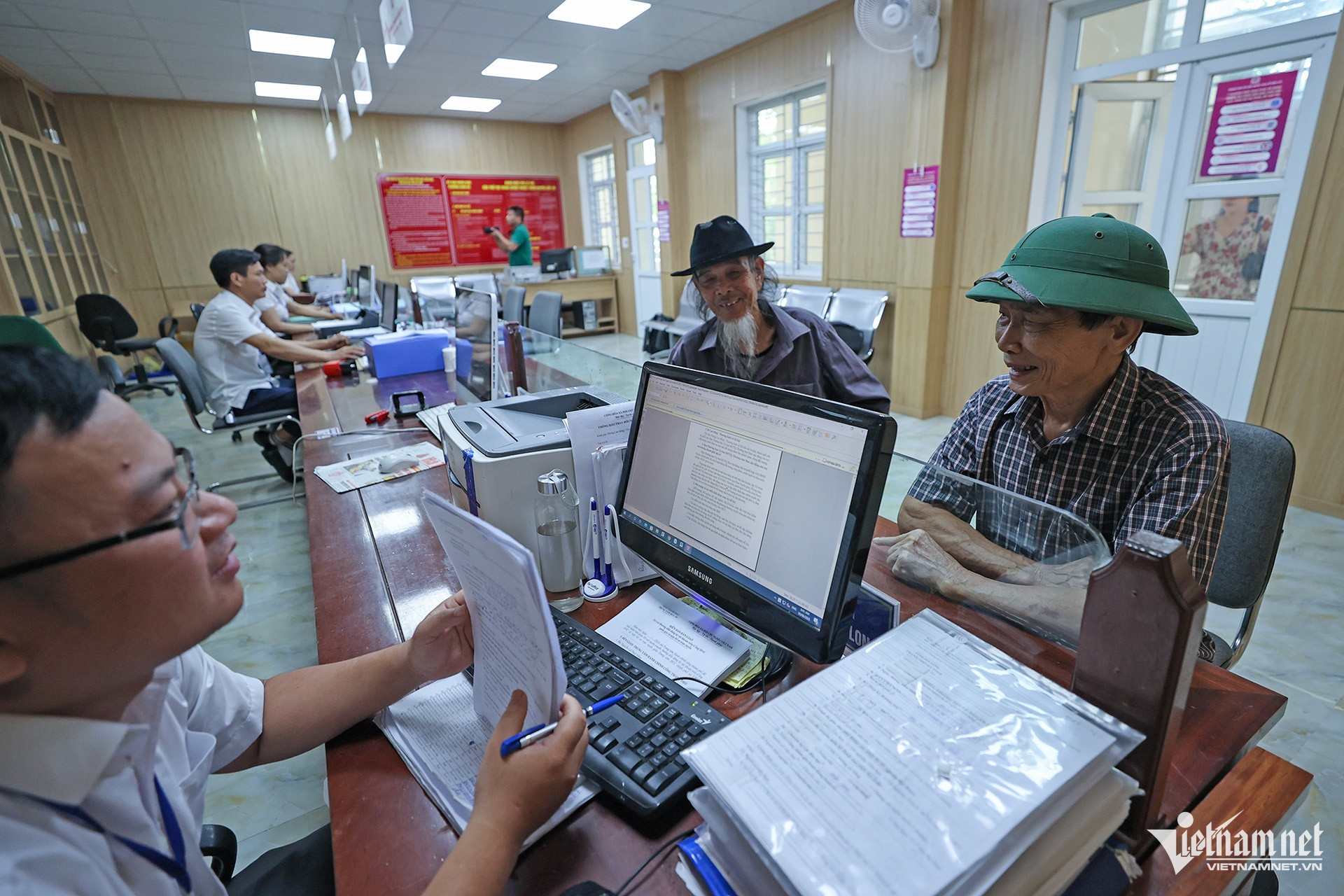
Many people have expressed concern about the quality of commune-level officers after district-level units are abolished. In general, commune-level officers are believed to have lower qualifications than district-level officers and most just have in-service, not full-time bachelor’s degrees.
The public suggested that it would be better to send district-level officers to commune units after the abolishment to ensure the smoothness of the local authorities’ operation.
However, some argue that the assumption is untrue. Many commune officials today hold formal university degrees and have strong work capabilities, especially in big cities.
"It is biased to say provincial or district officials will do better if they are sent to commune-level units,” a reader said.
“They didn’t rise from the masses. They weren’t grassroots-grown but assigned from above,” he explained.
Elaborating on this, the reader said commune officers are closer to local people, so they better understand local conditions, and can make more reasonable decisions.
Ta Le Minh, another VietNamNet reader, commented: "Many commune officials are more experienced than district ones. Working directly with people, they understand people and handle situations faster. Plenty of commune officials have full-time university degrees and good skills, so we can’t say the same for everybody."
"The key lies in decentralization and delegation. Commune officials absolutely can handle it," reader Le Minh said.
Meanwhile, Van Thanh said commune officials’ qualifications differ in different localities From personal experience, he finds commune and ward officials in HCMC work meticulously, professionally, and systematically.
He said he faces trouble when following administrative procedures in his hometown. Commune officers are not good at computer skills, lack legal knowledge, and sometimes pass the buck to other officers.
Quach Thi Thu shared her husband’s story with a sigh amid claims that commune officials are underqualified. She said her husband, 40, is deputy chairman of the commune People’s Council.
"He’s responsible, always thinks of the people, dares to protect them. He completes all assigned tasks well. As his wife, I’m proud of him. But under the commune streamlining plan, commune officials need full-time university degrees or higher. He has a junior college degree, and in-service university degree. I am afraid he’ll lose his job," she said.
Thu argued that if officials have high qualifications but poor ethics, degrees mean nothing.
Agreeing that "not all commune officials are underqualified," Nguyen Huy Khoi said: "Commune officials are actually very capable, but their working conditions are poorer than district officials. For example, a computer bought 10 years ago still hasn’t been replaced due to lack of funds."
Currently, each commune official juggles multiple roles. For instance, a social culture official handles propaganda work, children’s issues, poverty and near-poverty surveys, support policies and social welfare… and more. Meanwhile, there are many district officials and each of them is in charge of one certain field.
Resource preparation
Offering solutions to boost commune officials’ skills, Hoang Thanh Son suggested district officials reassigned to communes could guide and train commune staff to improve their skills.
In rural and remote areas, where commune officials lack learning opportunities and tech access, they might feel puzzled with district-scale tasks.
"When eliminating districts, remaining officials must boost their efficiency. Even chairmen must work like staff, not just sit and sign," one reader suggested.
However, to ensure smooth operations in the post-reorganization period, it is necessary to thoroughly prepare human resources beforehand.
Many readers propose raising salaries and benefits for commune officials to keep them committed to work. If the workload after the merger doubles or triples but the salary regime doesn’t ensure a decent living, many people will resign.
Hoang The, who served as head of a district-level specialized division for 17 years, supports the policy of eliminating the district level. He acknowledges that the district level only acts as a middleman, slowing down work. He suggests merging multiple communes into one to cut administrative costs.
"Submitting papers through multiple levels delays things, wastes time, and slows progress. So, I agree with the policy to abolish the district level and merge provinces as soon as possible, while also combining multiple communes into one. Each commune or ward should have at least 15-20 thousand people, an area of hundreds of square kilometers or more, to reduce budget costs for salaries," The said.
Nguyen Thao